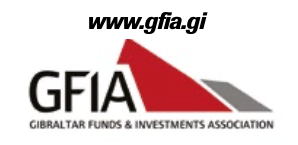
By Heather Adamson, Gibraltar Funds and Investments Association
For the past five years Gibraltar has positioned itself as a hub for crypto funds, and has been ranked 3rd in the world for crypto fund domicile in both 2021 and 2022 by PwC.
This success is in part due to existing regulations in the form the Financial Services Act and Experienced Investor Fund Regulations not being restrictive on asset class but also due to the development of new regulations:
- the creation of a ‘dual regime’ which allows experienced investor funds to opt out of the AIFMD requirements, including a regulated AIFM and AIFM depositary; and
- the establishment of protected cell limited partnerships allowing funds to be established as limited partnerships which benefit from tax transparency and flexible governance arrangements but still use segregated portfolios and therefore avoiding having to establish a new structure for each new strategy.
Is a supportive regulatory regime enough?
Crypto funds, and the wider crypto sector, have faced multiple challenges recently, from the collapse of FTX to the closure of crypto friendly banks Silicon Valley Bank and Signature Bank. It is clear a supportive regulatory regime is not all that is required for the development of a strong crypto fund sector.
Counterparty risk is high and the recent market events have jolted both market participants and regulators.
The eyes of regulators globally are now focused on crypto and while it will take some time for multi-jurisdictional regulation to be negotiated and agreed, crypto funds continue to seek trading venues, banking and payment solutions.
While Gibraltar’s regulatory regime sets out the general arrangements for safe custody of assets and delegation of functions for all investment funds (without being specifically restricted for crypto funds), it is the ecosystem of experienced market participants and consultative approach that has defined what and how these aspects should be considered.

The crypto code of conduct
Gibraltar’s Funds and Investments Association first published their Crypto Code of Conduct in October 2018 and this was subsequently updated and revised in March 2022. The code is published as an addendum to the wider Code of Conduct for investment funds.
The code sets out matters of best practice in relation to corporate governance and tackles the specific nuances of crypto funds. Funds are required to apply for the code on a comply or explain basis, meaning the code does not become obsolete due to technological changes or advances and instead focuses on the principals.
Corporate Governance
A crypto fund’s control environment should consist of appropriate governance and management functions taking in consideration attitudes, awareness, and experience of the board. This wide focus on the responsibilities being that of the whole board ensures independent directors are actively involved, invested, and can seek to integrate lessons learned quickly across the industry.
Risk Management
The board is responsible for the application of appropriate risk management practices, including setting risk appetite, tolerance levels, quantifying and monitoring. Risk management must address custody of digital assets, misappropriation or theft, liquidity, counterparty, and money laundering risk. The clear requirement to establish a framework
means funds are focusing on analysing their risk exposure from day one and thinking cannot be left to one key man in a siloed capacity.
Valuation
While there is still a lack of formal standards specific to digital assets and debate as to whether these are required, the code ensures funds are considering the various classification options in advance. The focus on disclosure, handling conflicts of interest and discussion with the fund’s auditor are top priorities and Gibraltar’s accountants and auditors have taken a key role in discussions.
Safekeeping and Security
Traditional funds deposit assets with regulated banks and custodians; however, these options are not yet available to crypto funds. While there is rapid development of custodian services, the counterparties are still in their infancy and do not always handle the broad range of different digital assets that funds are seeking to engage with.
The code requires funds to develop a written policy on their safekeeping arrangements that seeks to replicate the safeguards in place in traditional finance where possible but also understands the limitations of current offerings and technologies. Crypto funds are required to consider risk, controls, and mitigating practices.
Trading
The code encourages use of regulated exchanges and markets with funds being required to undertake due diligence on the venue before engaging. A focus on independent or external comfort such SOC 1 or SOC 2 type reports is encouraged.
Anti money laundering
Gibraltar funds are covered by the Proceeds of Crime Act and are required to undertake due diligence on all investors; however, the code highlights the importance of considering the unique set of risks relating to digital assets including verification of ownership and risk screening of wallet addresses.
Regulation plus best practice
Although the crypto bear market has been a difficult time for many participants, Gibraltar’s decision to embrace crypto and the wider DLT sector early with regulation and support, and the resulting growth of an experienced and strong service provider sector has positioned the jurisdiction well to weather these tough times and prepare for the future growth.






